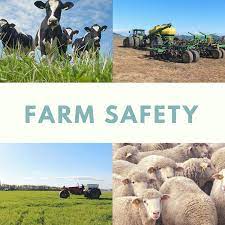September 20, 2022
The Community Health Corner
Submitted by Stephanie Gutierrez

Community health uses science-based approaches for the greatest health benefit to the greatest number of people by addressing the social, economic, and structural drivers that impact everyone’s health. The National Extension Framework for Health Equity and Well-being recommends using community development practices to ensure that every person has the opportunity to "attain his or her full health potential," and no one is "disadvantaged from achieving this potential because of social position or other socially determined circumstances." The following tools and resources can be used to improve health equity and well-being working with communities to achieve the nation’s Healthy People 2030 objectives.
EXPLORE NOW: For many areas of the country, the fall harvest season is one of the busiest, but also one of the most dangerous for our nation’s farmers and farm workers. Join CDC’s National Institute for Occupational Safety and Health (NIOSH) in recognizing the contributions of our nation’s agriculture workers by learning more about the hazards farmers and farm workers face every day, as well as illness and injury prevention efforts for this critical workforce. Visit - Protecting Agriculture’s Future: National Farm Safety and Health Week to learn more.
VISIT NOW: Join the Benjamin Rose Institute on Aging for the 16th Annual Katz Policy Lecture on September 29. This year's presentation will examine diversity in aging. Keynote speaker Lauren Pongan, National Director for the Diverse Elders Coalition, will discuss new directions in national and state policies related to older adults and their family and friend caregivers from diverse communities. Following the keynote speaker, a reactor panel of industry experts will give their responses to the presentation and discuss their impressions of the impacts of these policies to individuals and the communities they represent.
READ NOW: The Community Preventive Services Task Force (CPSTF) recommends school-based anti-bullying interventions to reduce bullying experiences and improve mental health among students. Systematic review evidence shows that when interventions are implemented in schools, students report fewer episodes of bullying perpetration, fewer episodes of bullying victimization and fewer mental health symptoms such as anxiety and depression. Visit - Violence Prevention: School-based Anti-bullying Interventions to learn more.
For more information, contact Elaine Johannes, ejohanne@ksu.edu; and Stephanie Gutierrez, smgutier@k-state.edu.